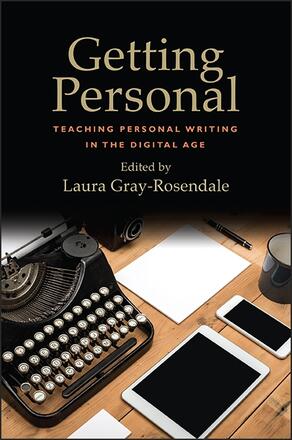
Getting Personal
Teaching Personal Writing in the Digital Age
Alternative formats available from:
Addresses how digital forms of personal writing can be most effectively used by teachers, students, and other community members.
Description
Silver Medalist, 2019 Independent Publisher Book Awards in the Education (Commentary/Theory) Category
At a time when Twitter, Facebook, blogs, Instagram, and other social media dominate our interactions with one another and with our world, the teaching of writing also necessarily involves the employment of multimodal approaches, visual literacies, and online learning. Given this new digital landscape, how do we most effectively teach and create various forms of "personal writing" within our rhetoric and composition classes, our creative writing classes, and our community groups? Contributors to Getting Personal offer their thoughts about some of the positives and negatives of teaching and using personal writing within digital contexts. They also reveal intriguing teaching activities that they have designed to engage their students and other writers. In addition, they share some of the innovative responses they have received to these assignments. Getting Personal is about finding ways to teach and use personal writing in the digital age that can truly empower writing teachers, writing students, as well as other community members.
Laura Gray-Rosendale is President's Distinguished Teaching Fellow, Director of S.T.A.R. English, and Professor of English at Northern Arizona University. She is the author of seven books, including College Girl: A Memoir and Fractured Feminisms: Rhetoric, Context, and Contestation (coedited with Gil Harootunian), both also published by SUNY Press, and Rethinking Basic Writing: Exploring Identity, Politics, and Community in Interaction.
Reviews
"…a robust and timely collection on the state of personal writing in our highly digital contemporary culture. This is a helpful volume for teachers seeking to understand and implement personal writing in new ways in their classes. Getting Personal is also helpful for thinking about what comes next in personal writing, a notoriously flexible and inclusive genre." — Biography
"Getting Personal offers an engaging, comprehensive view of how and why instructors, in both creative and academic writing, can integrate contemporary writing and communication practices into their classrooms, assignments, and curricula." — Jill Talbot, editor of Metawritings: Toward a Theory of Nonfiction
"I am right now rethinking some of my assumptions about what it means to do and to teach personal writing—especially in digital environments. I'm also taken with the fact that while the chapters are clearly academic, they are also personal, and while several of them explicitly call the 'false binary between the personal and the academic' into question, my sense is that they themselves do so implicitly as well." — Barry M. Maid, coauthor of The McGraw-Hill Guide: Writing for College, Writing for Life, Fourth Edition